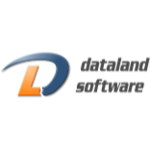List of Best Decision Support Software
Showing 10 of 23 productsAsinSeed is a software designed to boost your Amazon product rankings and drive sales. With its advanced features and intelligent algorithms, AsinSeed is a tool for any seller looking to dominate the competitive world of e-commerce. Get ready to expe...Read AsinSeed Reviews
AVDecision, is a solution for all your audio and video needs. With its user-friendly interface technology, AVDecision ensures smooth and hassle-free editing, converting, and sharing of media files. Say goodbye to complicated software and hello to sim...Read AVDecision Reviews
Knowmax is a software designed to enhance the efficiency and productivity of your business. With its intuitive interface features, Knowmax helps streamline processes, increase customer satisfaction, and drive growth. Say goodbye to outdated solutions...Read Knowmax Reviews
TrustCheckr, the ultimate trust and safety solution for individuals and businesses. Our software provides advanced technology and comprehensive features to protect against fraud, scams, and identity theft. Say goodbye to worries and uncertainties wit...Read TrustCheckr Reviews
GoldSim is a and versatile simulation software that allows users to model complex systems and make informed decisions. With its intuitive interface capabilities, GoldSim empowers users to accurately analyze and optimize their processes, reducing risk...Read GoldSim Reviews
Expert Choice is a decision-making software designed to revolutionize the way businesses and organizations make critical choices. With its innovative features and user-friendly interface, Expert Choice streamlines the decision-making process, empower...Read Expert Choice Reviews
Decision Oven is an innovative software that helps businesses make data-driven decisions with ease. With its user-friendly interface analytical capabilities, Decision Oven empowers companies to optimize their strategies and stay ahead in todays rapid...Read Decision Oven Reviews
Evaluator, the innovative software designed to streamline and enhance your evaluation processes. With its user-friendly interface features, Evaluator makes it easier than ever to assess and analyze data, providing you with valuable insights and facil...Read Evaluator Reviews
DecisionTools Suite is a software that empowers decision-making processes through advanced analytics and visualization tools. It allows businesses to make informed choices with confidence, saving time and resources. With a user-friendly interface and...Read DecisionTools Suite Reviews
Best Offer Advisor is a software designed to elevate your online shopping experience. With its advanced technology and user-friendly interface, it provides valuable insights and updates on the latest deals, discounts, and promotions across various e-...Read Best Offer Advisor Reviews
- What Is Decision Support Software?
- Top Reasons Why Businesses Need Decision Support System?
- What Are the Top Key Features of Decision Support Software?
- What Are the Top Benefits of Decision Support Software?
- What Are the Steps to Choose the Right Decision Support System?
- What Are the Types of Decision Support System for Different Industries?
- What Are the Technology Trends for Best Decision Support Software?
- What Are the Deployment Options for Decision Support Software?
What Is Decision Support Software?
Decision support software refers to a category of computer programs designed to assist individuals in making informed decisions by providing them with factual data and relevant information.
Data analysis and statistical modeling are employed to provide insights derived from user input. An instance of DSS decision support system software can be observed in the form of a spreadsheet.
Spreadsheets employ data validation, statistical computations, and data organization to generate insights that facilitate users' comprehension of information and enable them to make well-informed decisions.
This software enables users to efficiently evaluate multiple options and scenarios in order to ascertain the optimal outcome. The software has the capability to offer recommendations and analysis derived from the user's input, thereby proposing potential resolutions or alternate scenarios.
Decision support software is considered to be a highly helpful instrument, since it empowers users to effectively evaluate data with the aim of making optimal decisions according to their own circumstances.
The duration required for the implementation of an aviation maintenance software is contingent upon the programming language employed and the unique intricacies of the implementation process.
In general, the process of implementing a rudimentary aircraft maintenance program can be completed within a few minutes, whereas intricate implementations may necessitate many hours of coding.
Top Reasons Why Businesses Need Decision Support System?
1. Improves Decision Making Process – Decision support software is a tool that offers extensive information obtained from data, facilitating users to efficiently make well-informed decisions within an organizational context.
2. Enhances Efficiency – Decision supporting system is a valuable tool utilized by organizations to mitigate the occurrence of human errors and enhance the efficiency of decision-making processes.
3. Improved Collaboration – Decision support software facilitates enhanced collaboration and communication among users, so enabling them to acquire more comprehensive insights into data.
4. Improved Analytical Skills – The utilization of the best decision support software enables users to do data analysis and convert it into valuable information, hence enhancing the efficiency of decision-making processes.
5. Automated Reports & Visualizations – Decision support system software provides users with automated reports and visual representations of data, enabling them to efficiently detect patterns and get useful insights.
6. Optimized Performance – Decision support software plays a crucial role in identifying potential areas for enhancement and effectively optimizing corporate performance while keeping costs in check.
7. Improved Workflows – The implementation of streamlined business procedures has been found to enhance the accuracy and speed of decision-making.
8. Improved Risk Management – The identification and mitigation of potential risks are beneficial in the context of decision-making processes.
9. Cost Savings – The implementation of automated systems aids in cost reduction by removing the requirement for manual input and its associated processes in decision-making.
10. Real Time Insights – Decision support software enables users to efficiently gain insights from data through interactive means and within a timely manner.
11. Advanced Forecasting – The software has sophisticated predictive skills, allowing businesses to effectively anticipate market fluctuations and make informed decisions in response.
12. Improved Problem Solving – The ability to promptly recognize significant issues and afterward develop appropriate solutions is beneficial for enhancing the efficacy of decision-making processes.
13. Reduced Time to Market – Decision support system software plays a crucial role in expediting the decision-making process and enhancing efficiency by reducing the time required to make informed decisions.
14. Improved Visibility – Decision support software facilitates the enhancement of transparency and visibility in the decision-making process for all relevant stakeholders.
15. Increased Productivity – Decision decision-supporting system plays a crucial role in enhancing efficiency and minimizing expenses by offering valuable insights into data.
What Are the Top Key Features of Decision Support Software?
1. Predictive Analysis: The utilization of the best decision support software frequently facilitates the application of predictive analytics, so enabling users to discern patterns and fluctuations within data, and evaluate their prospective influence on forthcoming decision-making processes.
2. Trend Mapping: The use of decision support system software empowers users to effectively analyze data patterns, facilitating the ability to forecast forthcoming circumstances and behaviors with greater accuracy.
3. Data Consolidation: Decision support software plays a crucial role in the aggregation of critical data from various sources, hence offering a comprehensive and holistic perspective of pertinent information to facilitate the process of making strategic decisions.
4. Automated Reports: Decision support systems have the capability to generate automated reports, hence enhancing the precision and efficiency of analytical procedures.
5. Dashboard Technology: DSS Decision support system often incorporates dashboard technology, which facilitates data visualization and real-time analytics.
6. Collaboration Tools: Collaborative functionalities are frequently incorporated into decision support technologies, facilitating real-time cooperation among users for various decision-making endeavors.
7. Optimization: Decision support software plays a crucial role in enhancing the optimization of decision-making processes through the provision of valuable data, proactive suggestions for modifications, and identification of potential performance concerns.
8. Expert Advice: Decision support systems have the capability to offer guidance from domain experts in the specific field that the system is centered on. This enables decision-makers to benefit from the best practices that lie beyond their personal expertise.
What Are the Top Benefits of Decision Support Software?
1. Improved Accuracy: The utilization of decision support software enhances accuracy by mitigating the impact of decisions influenced by human mistakes. Users have the ability to make decisions based on data with enhanced precision.
2. Enhanced Efficiency: Decision support system software streamlines and automates decision-making processes, resulting in a reduction of the time and effort required to reach decisions.
3. Increased Accessibility: Decision supporting system enables users to efficiently retrieve and analyze diverse datasets, hence expediting the decision-making process.
4. Data Visualization: The utilization of the best decision support software facilitates users in efficiently retrieving and presenting intricate data, hence enhancing their ability to make well-informed decisions.
5. Integration of Artificial Intelligence: Decision supporting system is being created with several advanced features, including predictive analytics, machine learning, natural language processing, and computer vision. These characteristics contribute to the enhancement of decision-making intelligence.
6. Real-time Insights: Decision support software offers users the ability to access timely and up-to-date information regarding trends and patterns within data, so enabling them to enhance their decision-making capabilities by expediting the decision-making process and fostering more adaptability.
7. Automated and Scalable: The utilization of DSS decision system enables users to automate and optimize operations, hence enhancing system efficiency and scalability.
8. Cost Savings: Decision support system software assists customers in cost reduction by enabling them to avoid superfluous expenditures and optimize available resources.
What Are the Steps to Choose the Right Decision Support System?
1. Assess the business needs: Prior to choosing the best Decision Support Software (DSS), it is crucial to evaluate the business requirements to ascertain the necessary functionality and features of the software that are needed to fulfill the objectives.
The analysis should take into account various factors, including the nature of the data to be utilized, the decision-making process involved, the scale and intricacy of the organization, the magnitude and intricacy of the data, the requisite speed and precision, and the necessary user interface.
2. Conduct market research: Once the evaluation of the business requirements has been completed, it becomes imperative to undertake a comprehensive market research analysis pertaining to the diverse decision support system alternatives that exist within the industry.
This study aims to conduct a comparative analysis of several software packages, focusing on their respective features, costs, data integration capabilities, scalability, and usability.
3. Evaluate the software offerings: Following a comprehensive evaluation of the organization's operational requirements and an extensive analysis of the market landscape, the imperative task at hand is to carefully determine and choose the most suitable Decision Support System for the organization.
This analysis aims to assess the software options based on several key factors, including performance, cost, scalability, integration possibilities, user interface, and support. It is imperative to ascertain that any newly chosen software adheres to the basic specifications set forth by the firm and effectively delivers the required capabilities.
4. Consider benefits and potential risks: Prior to choose a Decision Support System, it is imperative to carefully evaluate the prospective advantages and drawbacks linked to the software. The advantages encompass enhanced data management efficiency, centralized decision-making, heightened insight into decision-making processes, integrated reporting capabilities, and enhanced customer interaction.
Potential risks associated with the utilization of software encompass the possibility of encountering software incompatibilities, diminished levels of consumer involvement, escalated software expenses, vulnerabilities in data security, and user unfamiliarity with the software.
5. Make the decision: Having conducted a thorough evaluation of the available software options, the time has come to make an informed and optimal decision. It is imperative to thoroughly evaluate the prospective advantages and drawbacks of the software products, as well as carefully assess the associated financial implications.
Additionally, it is crucial to gauge the program's efficacy in fulfilling the organization's specific requirements. It is imperative to conduct an assessment of the software's features and capabilities in order to ascertain its ability to fulfill the present and future requirements of the organization.
What Are the Types of Decision Support System for Different Industries?
1) Manufacturing Industries: The decision support software that is specifically designed for the manufacturing industry aims to enhance the efficiency of production operations and facilitate the coordination of inventory management across many stores. Decision support software that can be applied in the manufacturing business encompasses many tools such as Material Requirements Planning (MRP) systems, supply chain management software, and predictive analytics software.
2) Financial Industries: Decision support system software that is specifically designed for financial purposes aids in optimizing operational processes and offers valuable insights into the dynamics of financial markets. Software that can be utilized in the financial sector encompasses many applications such as portfolio management software, algorithmic trading software, cybersecurity software, and fraud analytics software.
3) Healthcare Industries: The purpose of healthcare-specific decision support software is to facilitate the coordination of patient care, surveillance of medical records, and optimization of workflow processes. Software that finds application in the healthcare industry encompasses various types, such as Electronic Health Record (EHR) systems, Practice Management Software, patient portal software, and patient engagement software.
4) Retail Industries: Retail-specific DSS decision support system is a specialized tool that aids in the analysis of customer data, enabling a comprehensive understanding of consumer behavior and emerging market trends. Software that can be utilized in the retail industry includes customer relationship management (CRM) software, demand forecasting software, and predictive analytics software.
What Are the Technology Trends for Best Decision Support Software?
The technological developments pertaining to the best decision support software are subject to continuous evolution and contingent upon the unique requirements and goals of the company.
Prominent patterns in contemporary practices encompass the utilization of artificial intelligence and machine learning techniques to facilitate decision-making processes, the application of natural language processing and information retrieval methodologies to extract valuable insights from extensive datasets, the advancement of mobile applications and cloud-based software to enable seamless integration of data across multiple platforms, and the adoption of big data analytics for instantaneous decision support and predictive analysis.
Furthermore, there is ongoing development of data visualization technologies aimed at facilitating the visualization of data for decision-makers, so enabling them to make well-informed judgments.
What Are the Deployment Options for Decision Support Software?
The various deployment choices for the best decision support software are contingent upon factors such as the software's nature and complexity, the organization's budgetary constraints, and its existing infrastructure.
Typical deployment options encompass cloud-based software, on-premise software, and a hybrid architecture that combines elements of both. Cloud-based software has gained significant popularity as a preferred option for decision support software due to its inherent convenience and comparatively lower cost.
This technology enables enterprises to remotely access software from any geographical area, hence eliminating the requirement for direct management, updates, and maintenance of the program. The utilization of on-premise software necessitates firms to procure and deploy licenses specifically for their internal systems.
This paradigm presents enhanced opportunities for customization and control, albeit accompanied by an escalation in IT overhead and maintenance expenses. The hybrid model enables enterprises to leverage a combination of on-premise and cloud-based software solutions.
The utilization of cloud-based software offers a cost-effective option that encompasses the advantages of flexibility, scalability, and simplicity. Simultaneously, it enables enterprises to retain control over their hardware infrastructure.










